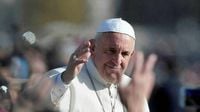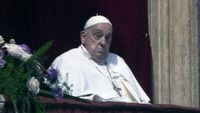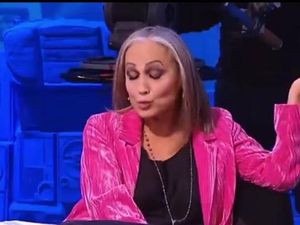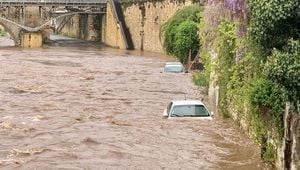The Vatican announced the death of Pope Francis on Monday, April 21, 2025, in a video statement. The 88-year-old pontiff, who was elected in 2013 following the resignation of Benedict XVI, passed away at 7:35 AM, as confirmed by Cardinal Kevin Farrell on Vatican television. "At 7:35 this morning, the Bishop of Rome, Francis, joined the house of the Father," Farrell stated, marking the end of a significant era in the Catholic Church.
Pope Francis, born Jorge Mario Bergoglio on December 17, 1936, in Buenos Aires, Argentina, was a prominent figure in the Catholic Church, known for his progressive views and advocacy for social justice. He was the first Jesuit pope and the first pope from the Americas, having taken the papal name in honor of Saint Francis of Assisi, reflecting his commitment to the poor and marginalized.
His final public appearance was on April 20, 2025, during the traditional Easter blessing, known as Urbi et Orbi, from the balcony of Saint Peter's Basilica. Despite his frail condition following a severe bout with double pneumonia, he made a brief appearance in his popemobile, greeting thousands of faithful gathered in the square. Witnesses noted his fatigue, with one Argentine, Maria Repezza, 58, saying, "I am moved by the strength he displays because he is sick and very old. He is one of us. We feel blessed." The Pope, however, delegated the reading of his Easter message to an assistant, emphasizing his declining health.
Throughout his papacy, Pope Francis was known for his calls for compassion and inclusivity. He often spoke against the mistreatment of migrants and marginalized communities, making headlines for his visits to refugee camps and his outspoken criticism of anti-immigration policies. His 2015 encyclical, Laudato Si', called for urgent action on climate change and environmental degradation, highlighting the moral imperative to care for creation.
In his Easter message, he urged leaders to "not yield to the logic of fear that confines us" and called for respect for freedom of thought and expression. His message resonated with many, as he highlighted the disdain often shown to the most vulnerable, saying, "What contempt sometimes feeds on the weakest, the marginalized, the migrants." This stance was consistent with his long-standing commitment to social justice and human dignity.
Pope Francis's journey to the papacy was marked by a humble beginning. He entered the seminary in 1958 and was ordained in 1969. He rose through the ranks, becoming the Archbishop of Buenos Aires in 1998 and was made a cardinal in 2001. His election as pope in 2013 came as a surprise, as he was not among the frontrunners. His election was seen as a significant shift for the Church, as he brought a fresh perspective that emphasized mercy, humility, and a focus on the needs of the poor.
During his 12 years as pope, he faced numerous challenges, including the sexual abuse crisis that has plagued the Catholic Church. He took significant steps in addressing this issue, including promoting transparency and accountability, and advocating for a zero-tolerance policy towards abuse. In 2019, he expelled Cardinal Theodore McCarrick from the clergy after allegations of sexual abuse, a move that marked a pivotal moment in the Church's response to the crisis.
As the Church mourns the loss of Pope Francis, preparations for his funeral and the election of his successor are underway. The Vatican has outlined a nine-day mourning period, with a conclave to elect the next pope expected to take place within 15 to 20 days. In the interim, Cardinal Farrell will serve as the acting pope. Notably, Pope Francis had expressed his wish to be buried in the Basilica of Saint Mary Major, a departure from tradition as most popes are buried in Saint Peter's Basilica.
His funeral is anticipated to reflect his commitment to simplicity and humility, as the Vatican has introduced a more streamlined ritual for papal funerals, including the use of a simple wooden and zinc coffin, moving away from the traditional three-tiered coffins. This change symbolizes his efforts to connect with the faithful and his belief in the importance of living a life of service over one of luxury.
Pope Francis's legacy is complex, marked by his efforts to modernize the Church and address contemporary issues such as climate change, poverty, and the rights of marginalized groups. His approach to leadership was characterized by a desire for dialogue and inclusivity, as he sought to bridge divides within the Church and society.
As tributes pour in from around the world, many reflect on the profound impact he had on millions of lives. His commitment to social justice, environmental stewardship, and the dignity of all people will be remembered as hallmarks of his papacy. In a world often marked by division, Pope Francis's call for unity and compassion remains a powerful message that resonates with many.
In the days to come, the Catholic Church will continue to navigate the challenges and opportunities ahead, guided by the principles that Pope Francis championed throughout his ministry. His passing marks not only the end of an era but also the beginning of a new chapter for the Church as it seeks to honor his legacy and continue his mission of love and service.





